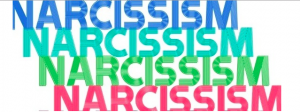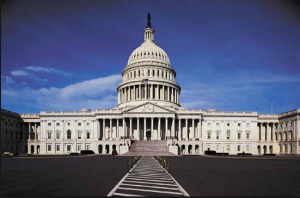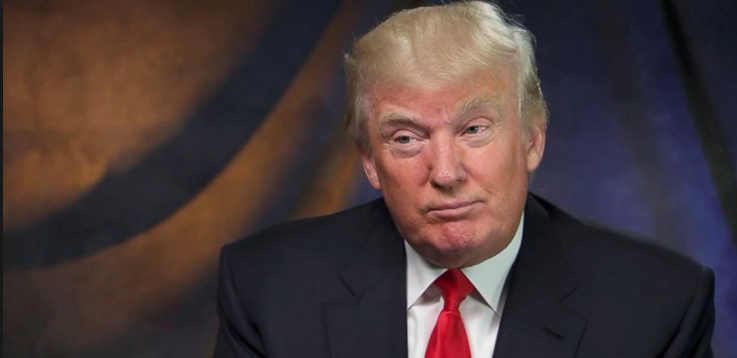With Donald Trump’s inauguration upon us in a few days’ time, I find myself thinking of Vice President Biden’s comments earlier this month: “Grow up Donald. Time to be an adult. You’re president.”
That is not going to happen.
Why not? That is the question that I hear being asked repeatedly: Why is it that Donald Trump keeps behaving in this aggressive, belligerent, exaggerated manner, especially since he has already won the election?
 The response to this week’s press conference echoes that sentiment. Reactions from reporters and citizens alike included statements such as: “Donald Trump is not what he seems”; “The emperor’s new clothes”; “Makes me worried about the future”; “The dark side of Donald Trump’s insatiable need to be liked.” One particularly extraordinary insight came from reports by Politico and Vox: Trump planted paid staffers at the press conference to clap, giving him not only support but also the “instant gratification” reminiscent of his rallies.
The response to this week’s press conference echoes that sentiment. Reactions from reporters and citizens alike included statements such as: “Donald Trump is not what he seems”; “The emperor’s new clothes”; “Makes me worried about the future”; “The dark side of Donald Trump’s insatiable need to be liked.” One particularly extraordinary insight came from reports by Politico and Vox: Trump planted paid staffers at the press conference to clap, giving him not only support but also the “instant gratification” reminiscent of his rallies.
And what about the most recent video by Keith Olbermann, host of the political webshow The Resistance? In it, Olbermann asks calmly: “What is wrong with this man?”
Narcissism. That’s the explanation to which a wide range of commentators have now turned, as a way of making sense of Trump’s behaviour. These include, for a start, Tony Schwartz, Michael Moore, Dan McAdams, Daniel Wagner, Nigel Barber, Alistair Campbell and Henry Alford. These commentators aren’t talking the ordinary, self-absorbed narcissism that haunts modern life. They are pointing toward full blown Narcissistic Personality Disorder.
It’s a perfectly plausible claim. Recent studies have shown that narcissism and psychopathy are more common within the general population than is generally realised. And amongst which group of people is Narcissistic Personality Disorder particularly common? CEOs in the corporate world. Several books on the link have been published, such as Snakes in Suits (2007) and The Good Psychopath’s Guide to Success (2014). The esteemed business publication Forbes ran an article in 2013 under the title ‘The Disturbing Link Between Psychopathy and Leadership’.
However, there are many people who have never heard of Narcissistic Personality Disorder. They have no idea what it is or how it arises from unmet attachment needs. So they continue to find Trump’s behaviour baffling.
I thought a piece on this topic to be timely, since Trump is about to be inaugurated into one of the most powerful positions in the world. Our globe is a scarier place when it is impossible for citizens to predict or interpret a leader’s behaviour. Fear isn’t good for us.
I’m not partisan in writing this piece. I hope it will be of help to Trump supporters and detractors alike. We all need to think more about the ripple effects of mental functioning. If Donald Trump does have this serious personality disorder, then the two camps have something terribly important in common: the motivation for his actions is not caring for the American people, but is always about his own ego.
What’s Trump said now?
Let’s start with a few reminders of Trump’s recent behaviour.
- Trump continues to engage in explosive Twitter tirades, often tweeting late at night or early morning.
- On 13 January, he used the phrase “sleazebag political operatives” in a flurry of angry tweets.
 On 11 January, he referred to himself in third person during a press conference so disjointed that media descriptions have included “a train wreck” and “frequently disingenuous and ugly but compelling.”
On 11 January, he referred to himself in third person during a press conference so disjointed that media descriptions have included “a train wreck” and “frequently disingenuous and ugly but compelling.”- On 11 January, he used Twitter to accuse the US intelligence services of functioning like those in Nazi Germany.
- On 9 January, he called Meryl Streep one of the “most overrated actresses in Hollywood”, following her speech criticising his bullying behaviour.
- On 9 January, the media mogul Rupert Murdoch gained a place on Trump’s list of “great guys”, because “Murdoch likes me much better as a very successful candidate than he ever did as a very successful developer!”
- On 9 January, Trump told the New York Times that all the dress shops in Washington DC had sold out in eager anticipation of his inauguration – which turned out to be a bit of an overstatement when checked by reporters.
 On 6 January, he referred to himself in a tweet as a “ratings machine”, pointing out that his ratings as host of the television show The Apprentice had “swamped” the first season ratings gained by its new host, Arnold Schwarzenegger.
On 6 January, he referred to himself in a tweet as a “ratings machine”, pointing out that his ratings as host of the television show The Apprentice had “swamped” the first season ratings gained by its new host, Arnold Schwarzenegger.- On 4 January, Trump claimed that sales of 16-year-old Jackie Evancho’s albums had “skyrocketed” after her announcement that she would sing at his inauguration ceremony, although an analysis showed that the spike is better explained by the fact her Christmas album was on sale during December.
Members of the public who aren’t yet on Twitter might be wondering on how earth brief social media statements, only 140 characters in length, can matter in the real world. Yet they absolutely do. First, we know for sure they come from Trump, not from some political committee who has crafted them on his behalf. They thus provide first-rate insights into his character. Second, it is this very personal use of Twitter that his supporters love. They feel the tweets give them a direct link to him, which would never be possible via the ‘biased media’.
But how does one explain these acts that are not presidential, comments that are so often eccentric and extreme? We start by realising that, if viewed through the lens of Narcissistic Personality Disorder, their content and tone aren’t unusual. They are entirely predictable, especially for a man now living outside his natural comfort zone. Trump has much less control of his world as a politician than he did as a businessman.
What is Narcissistic Personality Disorder?
Most articles discussing Narcissistic Personality Disorder start with a description of its symptoms. As summarised by Preston Ni, author of the book How to Successfully Handle Narcissists, ten key signs are:
- Grandiose personality
- Charmer
- Rule breaker
- Incites negative emotions, especially through tantrums
- False image projection
- Conversation hoarder
- Conversation interrupter
- Sense of entitlement
- Boundary violator
- Manipulates others by using them as an extension of the self
These descriptors give you a chance to decide whether you think they fit Trump’s behaviour. You can make a judgment as to whether you think it is possible he might have a diagnosable mental disorder, included within the clinical manual DSM-IV and attributable to somewhere between 1% and 6% of the US population. Amongst corporate leaders, it is believed to be four times that rate.
 I use the world ‘possible’ above because it is technically impossible to know Trump’s mental health status without examination by a psychiatrist. The fact that no clinical professional has been given a chance to interview him is one of the reasons we haven’t heard more about Narcissistic Personality Disorder over this election period. All psychiatrists are prevented by the 1973 ‘Goldwater Rule’ from diagnosing celebrities whom they have not actually examined. Bodies like the American Psychiatric Association and the UK’s Royal College of Psychiatrists require that their members abide by it, due to the inaccuracy inherently at risk in ‘armchair diagnoses’.
I use the world ‘possible’ above because it is technically impossible to know Trump’s mental health status without examination by a psychiatrist. The fact that no clinical professional has been given a chance to interview him is one of the reasons we haven’t heard more about Narcissistic Personality Disorder over this election period. All psychiatrists are prevented by the 1973 ‘Goldwater Rule’ from diagnosing celebrities whom they have not actually examined. Bodies like the American Psychiatric Association and the UK’s Royal College of Psychiatrists require that their members abide by it, due to the inaccuracy inherently at risk in ‘armchair diagnoses’.
Critics, though, argue that the stakes with Trump are now too high. What if the President of the United States is pathologically mentally unfit? Their worry is reasonable, because when it comes to Narcissistic Personality Disorder, the people who end up suffering most are not narcissists themselves. Instead, it is the people affected by their behaviour. That would be us, ordinary citizens in countries across the world.
As a research scientist who works with the public, my job is to help make sense of scientific insights on attachment, connection and human relationships. My aim in doing that is to reduce suffering. I think we deserve access to ideas and information that can assist us in interpreting unsettling behaviour from the next President of the United States of America. We need to reduce the fear and anxiety floating in the world.
So here’s how I think it is easiest to make sense of Trump’s behaviour: understand what’s driving it. The answer is: human attachment needs. At a fundamental level, Trump is no different from the rest of us. Here are two reasons why.
Why Trump is no different from the rest of us
1. We’re all driven by attachment needs.
 Love. Belonging. Emotional safety. Human beings have a craving for these things. They lie at the core of the attachment system. When I say ‘core’, I really mean that. These are biological needs.
Love. Belonging. Emotional safety. Human beings have a craving for these things. They lie at the core of the attachment system. When I say ‘core’, I really mean that. These are biological needs.
All mammals seek connection, but it is especially intense for humans. Our large skulls cause our offspring to be born extra-early, extra-vulnerable and ultra-dependent. It is our biological attachment system that keeps us alive as babies and that frames our relationships as adults. When our attachment system is placed under threat, our brains and bodies panic, because we move toward overwhelm. When the overwhelm gets too intense, it starts to feel like we’re at risk of dying. Our sense of self is tied up with the unconscious strategies we use to manage occasions on which panic rises.
People with Narcissistic Personality Disorder live with a lot of unconscious panic. Their sense of self is fragile, as a consequence of emotional injuries they suffered early in life. Their way of coping with that panic is to develop a false self that they can present to the world. The more grandiose and exalted, the better. That idealised self-image, projected to the world, keeps them from feeling the overwhelming emotional wounds that gave birth to the inauthentic self in the first place. As the author Preston Ni puts it, deep down, pathological narcissists feel like the ‘ugly duckling’. They worry they aren’t good enough, but they don’t want anyone, including themselves, to know it. A lot of unconscious psychological energy has to go into keeping up the front. Phew! It’s exhausting just describing it!
So, at a deep human level, the rest of us are just like Donald Trump, and vice versa. We all want to be loved.
2. We’re all seeking a sense of safety. Control gives us that safety.
 We all seek emotional safety. That’s the aim of our attachment system. It is always on the look-out for relationship threats that can be spotted on the horizon. That monitoring is crucial to us as babies, because our immature stress management system renders us totally dependent on summoning people to rescue us from overwhelm. Overwhelm is frequent in babies’ lives; it rears its head hundreds of times a day. And it’s not fun. Remember: once it gets intense, overwhelm feels like impending death.
We all seek emotional safety. That’s the aim of our attachment system. It is always on the look-out for relationship threats that can be spotted on the horizon. That monitoring is crucial to us as babies, because our immature stress management system renders us totally dependent on summoning people to rescue us from overwhelm. Overwhelm is frequent in babies’ lives; it rears its head hundreds of times a day. And it’s not fun. Remember: once it gets intense, overwhelm feels like impending death.
We gain a sense of safety through having enough control over our environment and other people. We are our best selves when we feel in control. If the threat risk has dropped, there is no need to stay on high-alert. Control = emotional safety = relief = relaxation.
You can see that pattern in Trump’s behaviour. When he’s at home at his Mar-a-Lago resort in Florida, he is described as relaxed and calm. At his 2016 New Year’s Eve party, held there, Trump was described by the New York Times as “comfortable in his own skin”. He was reported by attendees as “holding court” at the party: “totally at ease, very positive, very gregarious”. Sure, he’s at home. He’s in control. He can be his charming best self.
It makes sense that he began his term as President Elect, as reported by journalists Maggie Haberman and Ashley Parker, concerned about how frequently his new job will allow him to get home to New York and Florida. It makes sense that he is keen to host foreign dignitaries in his Washington DC hotel, rather than in the customary lodgings for Presidential visitors, Blair House.
His Cabinet picks? He has chosen people he feels safe with. They may not all be the best people for the job, but, hey, they feel trustworthy to him. That’s emphasised by his tweet on 13 January, in which he said: “I want Cabinet nominees…to be themselves and express their own thoughts, not mine!” Why does he need to articulate a quality that should come automatically as part of the job description for a Cabinet post?
Integrating family members into his political activities, despite the conflicts that risks? Yes, his family members make him feel safe. Rude to reporters at a press conference? Well, since he doesn’t generally like the media and he doesn’t know what questions reporters are going to ask him, it can’t feel a safe environment for him, can it? That would easily send his self-regulatory system into overdrive. Reluctant even to travel in the Presidential plane, Air Force One? Okay, his suggestion that he hire out his private jet to the government for his Presidential travel would indeed make him money, but I reckon that what’s more pertinent is a feeling of familiarity and relief when travelling inside his own personal plane.
Donald Trump is no different from the rest of us. He is seeking a sense of emotional safety. And, if he has Narcissistic Personality Disorder, then that internal sense of safety is fragile. A person inevitably exerts more control over their external environment when they can’t find a sense of control internally.
 The problem for Trump is that he about to be President of the United States. That role risks putting him constantly outside of his comfort zone. He cannot control Congress; he cannot control the press; he cannot control other countries; he cannot control what his critics say of him. All of that uncertainty would easily keep him on constant high-alert. That would explain why he so often hits out on Twitter and in interviews. Punching someone – whether with your words or your fists — is a way of exerting control. All bullies instinctively get that.
The problem for Trump is that he about to be President of the United States. That role risks putting him constantly outside of his comfort zone. He cannot control Congress; he cannot control the press; he cannot control other countries; he cannot control what his critics say of him. All of that uncertainty would easily keep him on constant high-alert. That would explain why he so often hits out on Twitter and in interviews. Punching someone – whether with your words or your fists — is a way of exerting control. All bullies instinctively get that.
Moreover, they feel better after punching. Lashing out is a tonic. Their cortisol levels drop once they’ve discharged all their pent up anxiety.
The problem for us ordinary people is that a leader who feels constantly threatened becomes even more erratic, more authoritarian, more dependent on intimidation and tantrums as a stress management strategy. That is a serious problem for the globe.
In understanding Trump, we better understand ourselves
 I predict there will be a number of people who won’t thank me for this article. Essentially, I’m saying that there is a rational explanation for Trump’s eccentricities. The extremity of what he says and does has driven many of us to our own extreme positions. It is easy to stay holed up in 1) derisively laughing at him or 2) protectively defending him or 3) terrified by his capacity to blow up the world.
I predict there will be a number of people who won’t thank me for this article. Essentially, I’m saying that there is a rational explanation for Trump’s eccentricities. The extremity of what he says and does has driven many of us to our own extreme positions. It is easy to stay holed up in 1) derisively laughing at him or 2) protectively defending him or 3) terrified by his capacity to blow up the world.
As Inauguration Week begins, I’m unlikely to win a popularity contest with either liberals or conservatives by saying that Trump’s dangerously quirky bullying can be explained logically. Indeed, the people I risk becoming most popular with are the trolls.
Important Note: Seeking to understand behaviour is not the same thing as saying that behaviour is okay. It is not okay to lie, to demean people, to rage and sulk, to obfuscate and gaslight. Seeking to understand behaviour is simply a starting place for devising solutions to problems. Finding effective solutions is always impossible unless understanding is your starting place. And you can’t reach understanding without curiosity. So yes, I am encouraging us to be genuinely curious about the origins of Trump’s behaviour.
Why publish an article that carries risk, when I could just as easily have chosen to another of my pieces on the healing power of laughter? The answer is that my main aim isn’t actually helping us to better understand the enigma of Trump. My main aim is helping us to better understand ourselves.
 America got itself (and the rest of the world) into this situation, where they have elected a man who may be seriously mentally disturbed, because too many people felt unheard. The misery of poverty and anxiety about uncertain futures went unsolved by their politicians. It is in times of fear that we look to someone else to save us. As I have written about before during this election, our own attachment needs place us at most risk when we feel most vulnerable. It is at times of vulnerability that we are most likely to be tricked by people who tell us they will be our saviour, that they will be the one to make our lives great again. All they have to do is make us feel heard.
America got itself (and the rest of the world) into this situation, where they have elected a man who may be seriously mentally disturbed, because too many people felt unheard. The misery of poverty and anxiety about uncertain futures went unsolved by their politicians. It is in times of fear that we look to someone else to save us. As I have written about before during this election, our own attachment needs place us at most risk when we feel most vulnerable. It is at times of vulnerability that we are most likely to be tricked by people who tell us they will be our saviour, that they will be the one to make our lives great again. All they have to do is make us feel heard.
The best way to make sure you aren’t being conned is to get better at listening to your own vulnerabilities. Along the way, you also get better at listening to others’ vulnerabilities. That compassion is invaluable because…if we are to heal ourselves from the division that Trump’s election has created, we will need to get very very good at listening to each other.


EXCELLENT post Suzanne!!! It is my experience that most adults do not understand attachment. Your article very clearly explains the the critical and essential need for attachment and the potential mental issues that can occur. It is my passion for the clear understanding of attachment to become common knowledge. Your very well done post contributes greatly to this needed goal!
Thankyou for your continued thoughts, analysis, expertise and wisdom Suzanne. Superb.
Excellent! As a licensed therapist you have described NPD in very understandable terms
Thank you.
Excellent article! I noticed, what I believed to be, severe pain in Trumps eyes the day after Merril Streeps speech. I couldn’t help but feel his pain. I don’t support Trump. Honestly he frightens me but I do have empathy for the child inside him. Praying for a solution to this presidency…..
Great article that brings understanding, so that we can choose to be rationally in charge of our responses, let go what we can’t control and thereby reduce fear and anxiety.
Thank You Suzanne.
Very good analysis, you made my day.
Excellent.
Esa
I suggest you read Orwell’s 1984 or read some history. The tendency to diagnose one’s opponents as sick in the head is a mark of the most dreadful authoritarianism. How long before you claim that it is not just the ‘ill’ leader but his ‘sick’ followers that need to be ‘removed’?
Next steps? Trump’s Twitter feed and those press conferences are an interesting opportunity. As are his interpersonal relationships (ref. small world’s theory, psychology of information spread). If people can clicker train Great White Sharks and Trump’s attachment/familiarity needs are driving most of his behaviour… !? Surely this is a great imperative and opportunity for positive psychological influence, that is non coercive. By controlled application of weight of numbers, righteous influence. Somehow package the best of self directed therapy in the most enticing of packages. I mean, putting Disney branding on the best presidential options is really patronising and probably isn’t his best most safest most familiar glamour. There’s definitely something though about glamour that represents caring and attachment, some kind of bombastic glistening teat to end all tears.
That’s not to blame mothers for the world’s ills. Thing is, there’s a lot of people we want to avoid reinforcing and justifying prejudiced and unhelpful behaviours towards by our implications here, not just mothers but all kinds of people who are struggling both to find a life worth living with minimal hurt to others. While I think Trump’s instability connected to power is scary and already dangerous, we can equate “illness” with danger unfairly; the Nazi Eichmann was extensively assessed before his trial in Jerusalem. Unusually normal, apparently.
Please don’t let’s let down or roll back all the progress in feminism and mental health, in showing compassionaye understanding to mothers and looking to evidence or solutions rather than easy or implied blame, progress in treating personality disorders and tackling stigma, providing safe lifeworthy options and recovery hopes.
Sometimes, with my paranoid side, I wonder if the CIA or somebody as powerful as the conspiracy theories reckon – or with my grandiose side, God I imagine – is wanting us to shoot the moon, and recognise the needs of people and reshape society in fundamental equality with each other in a way that works, the best of both the platinum rule and detached perspective.
My diagnosis is unclear. A variety of credible suggestions, and a refusal to diagnose anything much from the psychiatrists at the CMHT, but having grown up tested a lot and obsessing about it a lot and generally a lot better than when the depths of the perinatal depression that took me there originally were at their worst, I was probably fairly comfortable. And pathologising self diagnosis/self questioning. I have traits of developmental disability/specific learning disability (and have struggled in ways typical of dyspraxia/DCD despite an IQ of 145 as a child, some think autism, my son is also diagnosed) and I also have some traits of personality disorder, BPD specifically mentioned. But self-destructive behaviour, anxiety and sensitivity, emotional control and expression problems and obsessional/ritualising, avoidant behaviour and a certain amount of pedantic and expansive quixotry and fantasy, can be developmental disability, autism.
At one point there was a move to try and take down the barriers between syndromic views of traits and psychological patterns in the DSM, wasn’t there? It failed because of politics inside the organization? I don’t want to give the impression that I am conflating autism with personality disorder or saying that Trump has either for definite, but as a nobody patient maybe with a big head, I know that the experience and talk with peers in the UK and US and elsewhere shows the boundaries aren’t always as clear as we make them out to be.
I therefore would like to claim that a kind of non diagnostic inductive recovery process is the only practical route forward. A model for caring for everybody really, is our aim. The evidence that I have read reports of says coercive treatment orders don’t work. But as I say, don’t quote me, but I hear they clicker train the biggest baddest sharks in the ocean.